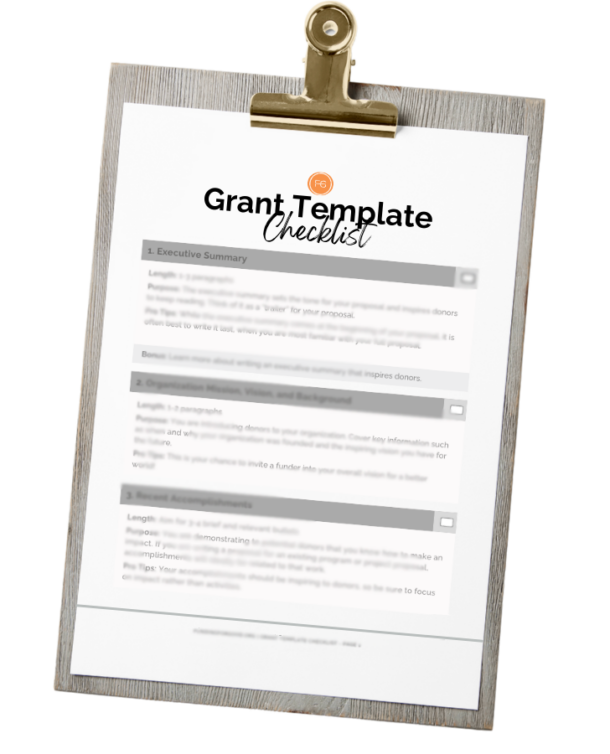by Briana Carrigg
Grant  applications often include the question, “What are your overhead rates?”
applications often include the question, “What are your overhead rates?”
Overhead rates are generally defined as a combination of management, general, and fundraising expenses. While discourse is evolving to accept overhead as essential to mission advancement, many funders still remain dismissive of organizations with higher overhead rates.
Ironically, these are often the funders who require applications with an abundance of questions that can be repetitive; might request that a special budget form be completed (in addition to attaching the operating budget that the organization’s key players have already worked tirelessly on); or may even require that an applicant print and mail enough packets of a grant application and the 60 page tax-return for their 10 trustees (yes, for a total of 600+ pieces of paper). Overhead rates matter.
As a participant in a grantmaking program myself, I recognize that trustees, program officers, and corporations must perform due diligence before allocating the valuable and limited funds that they oversee. That said, however, it is advantageous to ask funders to re-examine their giving goals and more simply, their applications. If you are involved with a funding entity and know that your application hasn’t been refreshed in a while, here are some thoughts and tips to shift to a more nonprofit-friendly grant application:
Time-value: Let’s just say for simplicity sake that Executive Directors and Development Directors (the ones often doing the actual grant writing) earn $60,000 a year or $30/hour. If it’s taking 10 hours to complete a grant application for your foundation’s $1,000 maximum grant, is that $300 investment of staff time cost effective? If the answer is “no”, can you cut down your questions to really get at the heart of what you need to know to make a funding decision? Are you asking duplicative questions without realizing it? Are you asking questions but getting the same stock answer from all applicants? What questions are your reviewers really focused on? And conversely what questions do your reviewers often dismiss? Could you switch your approach altogether and use the common grant application?
Time-value tip: Knowing that it might cost a nonprofit staff member, working at $30/hour, to complete a grant, consider how much time and money you would really want them to invest in your application. After determining those metrics, refine or synthesize your application accordingly.
Technology: Is your foundation still requesting paper applications? Online grant portals have revolutionized the way nonprofits request funding support. A range of grantmaking platforms exist to enhance efficiency, not only for the applicant but reviewers as well. Utilizing these technologies, reviewers can read applications online, make comments, and enter scores to be computed by the system. Furthermore, moving to an online platform is more environmentally friendly and saves applicants time and money related to printing and mailing.
Technology tip: For those funders interested in simply testing the waters of online applications consider Google Forms, at no cost, or Submittable, an easy-to-use platform with a reasonable price tag.
Clarity: Frequently, grantors request clarity and conciseness from their nonprofit applicants. There is immense value in asking funders to deliver the same in their grant overviews to ensure applicants are set up to succeed. Are your foundation’s guidelines and application scattered throughout various webpages? Do applicants need to read multiple pages of directions to understand your grant program? If so, can you synthesize or bullet these directions and move everything to one webpage? Are you a funder who provides a Word document of your online application so that the applicant can complete questions offline before entering responses in the portal? If so, can you say with certainty that the word document and online application have the same questions, same word counts, and request the same forms or attachments?
Clarity tip: Ask individuals outside of your foundation to do a test run of the application and request they cross-check your Word document with the online portal. Ask them to report back with any questions that arose through this exercise. Be sure to revisit and rework those sections of the application that were highlighted as being unclear.
Trust: Remember that nonprofits are governed by boards comprised of people like you and me. While not foolproof, these board members are just as concerned as your funding entity about getting things right. They WANT to be good stewards of your money and in more cases than not, ARE good stewards of your philanthropy. In fact, many of the board members overseeing these organizations are contributing their very own valuable and limited funds.
Trust tip: While due diligence should not be thrown to the wind, there is some merit to be had in trusting the sector and eliminating unnecessary hoops.
I want to circle back to my opening observation about grantors asking applicants, “What is your overhead rate?” If you are one of those funders asking this question, I think it’s prudent to point out that embedded in that overhead rate is the time it takes an applicant to complete your application, the time it takes to go to the bank to deposit your donation, the computer and internet required to complete your online application, or the paper, envelope, printer ink and postage required to mail a grant or grant report to you. I think you catch my drift. It’s simply unfair to judge an organization on their overhead costs if you (and dozens of other funders) are asking them to devote hours of time and resources just to request support.
So if you’ve made it to the end of this blog, I encourage you to turn now to your application. Explore the ways that you can make your application process more efficient and consider adding a little trust into your review process to help give nonprofit employees the time and energy they need to be the tenacious community resources our society has charged them to be.
If we can help with Grant Writing and Research Support or Development Coaching, let us know. Maybe you just want a few hours of consultation with one of our nonprofit experts – we can help. You may also find some Upcoming Events to attend or helpful information in our Free Stuff section. As always, Keep Growing for Good!


